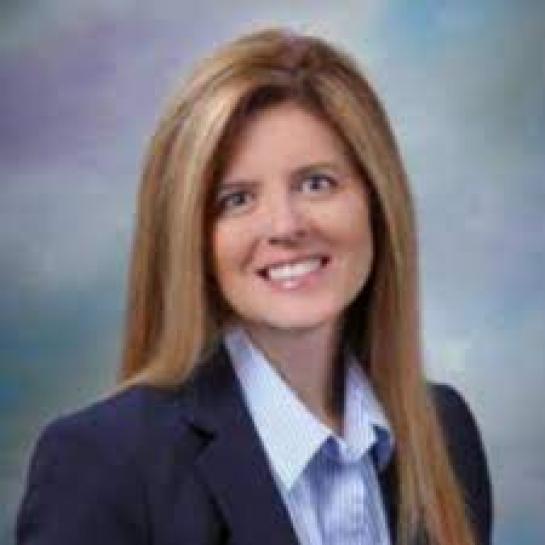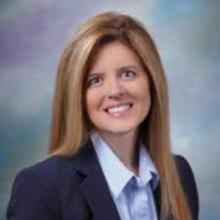President’s Message: A Welcome to the DR Community

It is my honor to serve as the incoming President of the CEC Division for Research (DR). I first want to acknowledge the many special educators and leaders who have partnered with researchers over their careers in a quest to build the knowledge-base to improve educational outcomes for individuals with disabilities. I would like to thank the leadership of DR and their role in promoting these research endeavors – those on whose shoulders we stand. I am grateful for the leadership of the DR board and committee members, the mentorship of the presidential line during my tenure on the board - Chris Lemons and Kathleen Lane - as well as the partnership of those who will serve in this role following me, Audrey Sorrells and Emily Solari.
As I begin my term serving DR in this role, I reflect on the challenges faced and endurance shown by the educational community over the past nearly two years. When school doors were closed to help protect students, educators, and communities from the spread of COVID-19, educators were relentless in their efforts to continue to provide students with instructional opportunities in non-traditional ways –we heard inspiring stories of educators delivering learning materials to students’ homes, teaching students through their front storm doors, and staying connected with students through Zoom, Google Classroom, and other online platforms. We also saw a coming together of educators and families as they worked together in new ways in an effort to keep students connected to each other, their school communities, and to continue their educational progress. All the while, educators, families, and students were facing tremendous hardship and loss.
During this time, we also saw funding priorities for COVID-related educational research of the impact and effective responses on behalf of our nation’s students. The special education research community responded in innovative ways – by shifting professional learning for educators to online and open access formats, adapting family support programs for online delivery, and creating online and telehealth access for individuals with disabilities to continue to participate in educational interventions, to mention only a few. In the coming issues of our professional journals, I anticipate reading about the innovative ways that researchers adapted to the changing context as well as the findings of this work. The current competition by Institute of Education Sciences (IES) on Improving Pandemic Recovery Efforts in Education Agencies (84.305X) continues the priority of recovery with a clear focus on students disproportionally affected by the pandemic, including students with disabilities.
As I reflect on these times, I am encouraged by the persistence of the special education community in continuing to conduct high-quality research to ensure educators and families have the best resources to promote the educational outcomes of individuals with disabilities. With this in mind, I hope to focus our Division on the following:
- Collaboration – This idea continues on Chris Lemon’s theme of connections. We must continue to be actively growing membership and participation in DR –expanding our membership to include a diverse group of researchers, state and local educational leaders and policy makers, school-based educators, family members, and individuals with disabilities. It is through these collaborations that the most pressing educational issues for individuals with disabilities can be identified and innovative research responses developed and tested. We encourage individuals to join the conversation through DR events, engaging in conversation at the annual CEC Convention, joining committees, and applying for DR leadership positions.
- Networks – Multiple voices strengthen our collective effort. With this in mind, I would like to continue the work related to cross-divisional research and dissemination collaborations. DR is unique in that division members are most often members of other CEC divisions aligned with the specific population(s) they serve -we invite researchers across all divisions to consider joining DR and participating in conversations about how to develop new and expand existing research network with others in their area or those who might bring new and diverse perspectives to their existing work. Further, I would like to continue to strengthen the ties established by my predecessors with the National Center for Special Education Research (NCSER) within IES. These networked communities draw on strength of diverse experiences and perspectives to continue to advance the field.
- Diversity – Under the leadership Tisa Aceves for many years and now Federico Waitoller, DR continues to prioritize our commitment to promoting diverse perspectives in educational research. We have established new DR awards to recognize researchers and research teams who represent and work on behalf of traditionally underrepresented communities such as people with disabilities who are BIPOC, English learners, members of the LGBTQ+ community, and others. We look forward to recognizing these research contributions in Louisville at the 2023 CEC Convention. Please watch for DR Newsletters and the website for the award applications and nominate deserving scholars.
I look forward to the opportunity of renewal offered by a new academic year and share my appreciation for the meaningful work of special educators on behalf of individuals with disabilities, families, and the profession. I also look forward to working with the DR, CEC, and special education community leadership and members to advance these priorities during my year as President. I welcome advice, suggestions, or other input for how we might accomplish these aims. Contact me at wendy.oakes@asu.edu. Thank you all for your continued relentless efforts and meaningful collaborations to ensure that rigorous, high-quality, meaningful, and impactful research is designed, conducted and disseminated to guide the work on behalf of individuals with disabilities, their families, and educators.
